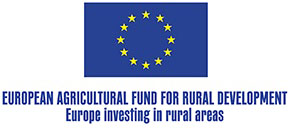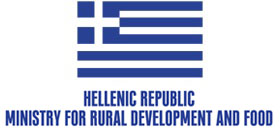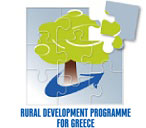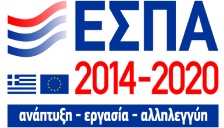Methodology
In the O.T. business plan, the model variable delivery system is tested on maize crops of a total area of 30 hectares. The variable rate will be compared to that of the producer’s conventional fertilization, to the baseline and to the control in randomized replicate strips.

The randomized complete block design allows statistical evaluation of the data in each plot. At the end of each growing season, the performance of the new fertilization practice will be compared and evaluated against the nitrogen response curve and the economically optimal nitrogen rate.

The main stages of the pilot applications in chronological order are the selection of the pilot areas, the experimental design, the supervision of irrigation and plant protection, the harvesting with a harvesting machine equipped with a yield monitor, the sampling and analyzes of the fruit and soil, evaluation of results and reports. The evaluation of the variable supply will be based on crop productivity, fertilization efficiency, environmental and economic indicators as well as quality parameters of the fruit compared to those of the producer.
Finally, by identifying the requirements of the project and the members of the OT regarding the promotion and promotion of the results, a detailed plan and promotion strategy will be developed for the necessary promotion of the project (producer briefings, workshops, promotional material, digital marketing campaign, press publications, ways of adopting the technology after the end of the project).
Originality and innovation of the project
Variable supply systems on the European market only concern nitrogen fertilization in granular form. These are active sensor systems communicating with rotary dispensers and application accuracy of 5-15 m. They therefore lack the high resolution required to significantly increase nitrogen use efficiency. In the US, sprinkler systems with active sensors are expensive as they are designed for large-scale farms. These lack the required accuracy of nitrogen dosing as they use slow response ball valves and inadequate control of pump power at rapid pressure change commands.
The variable fertilization supply system of KAL.LI.S.TI. is the result of many years of research and, for the first time internationally, it was experimentally tested in the Thessalian plain (FATIMA, Horizon 2020). The original features that give it significant advantages are the high 1-m resolution (achievable even at high movement speeds) and the low manufacturing cost adapted for micro-medium application scales. KAL.LI.S.TI. introduces an internationally innovative technology that allows producers to conveniently and economically move away from single fertilization to methods that better utilize soil fertility and provide spot nutrient balance within the field.
Technological innovations: Diagnostic accuracy is achieved by active sensors (40 kHz) and by a scientifically valid algorithm. The 1-m application accuracy is due to an innovative electronic flow system that controls the pump speed and thus the liquid flow through pulse resonance. The system works with automatic calibration, with full recording of operation data, on all types of tractors and in all weather conditions.
The pilot application is designed to demonstrate the economic and environmental benefits of the new technology in real conditions at the cooperative scale, but also at the field level for each individual producer.
The adoption of the new technology is expected to create a new field of professional activity through the provision of lubrication services by various entities (cooperatives/companies/individuals).
Role in the project
Goulandris Museum of Natural History
The Goulandris Museum of Natural History undertakes the coordination and scientific supervision of the project, at the same time it undertakes the statistical analysis of the effect of the interventions per field and year, the properties of the soil, the composition of the fruit and the yield of the crop and the overall evaluation of the variable supply.
Institute of Industrial and Livestock Plants – ELGO Dimitra
The Institute of Industrial and Livestock Plants undertakes the contacts with the producers of the Cooperative, the information and training of the new fertilizing methods proposed by the project. At the same time, it actively participates in the planning of the experimental actions and in the supervision of the cultivation work and the harvest. Undertakes necessary soil, foliage, fruit sampling, laboratory analyzes (NPK in fruit, soil nitrates), spatial analysis of foliage and yield data.
FARMERS’ COOPERATIVE OF THESSALIA “THESGI”
THESSALIA FARMERS’ COOPERATIVE “THESGI” undertakes the selection and use of plots, the supervision of crop irrigation and plant protection practices, the provision of nitrogen fertilizers in the pilot areas, the measurement of corn yield.
GAIA BUSINESS S.A.
GAIA BUSINESS S.A. by choosing the appropriate communication channels, it will cover all categories of promotional activities. By systematically disseminating the results through the press, with a targeted digital campaign, the results will be disseminated through the internet. Through participation in conferences, the results will be disseminated to the scientific world. The organization of a local workshop aimed at the agricultural world and agricultural policy entities will highlight the necessity of innovation in crop management in Thessaly. Through a networking day with EOs from all over Greece, the national diffusion of results and the gap between the agricultural and scientific worlds will be covered in order to transfer innovation to businesses.
KASVIKIS F. PANDREFTAKIS CH. KE SIA OE. – PRO DEPOT
The company KASVIKIS F. PANDREFTAKIS CH. KE SIA OE undertakes the disposal of the technology of variable supply of fertilizers, the implementation of fertilization interventions in the fields – variable supply of nitrogen in the pilot areas, the monitoring of the reflection of the foliage, the processing of the fertilization data.





